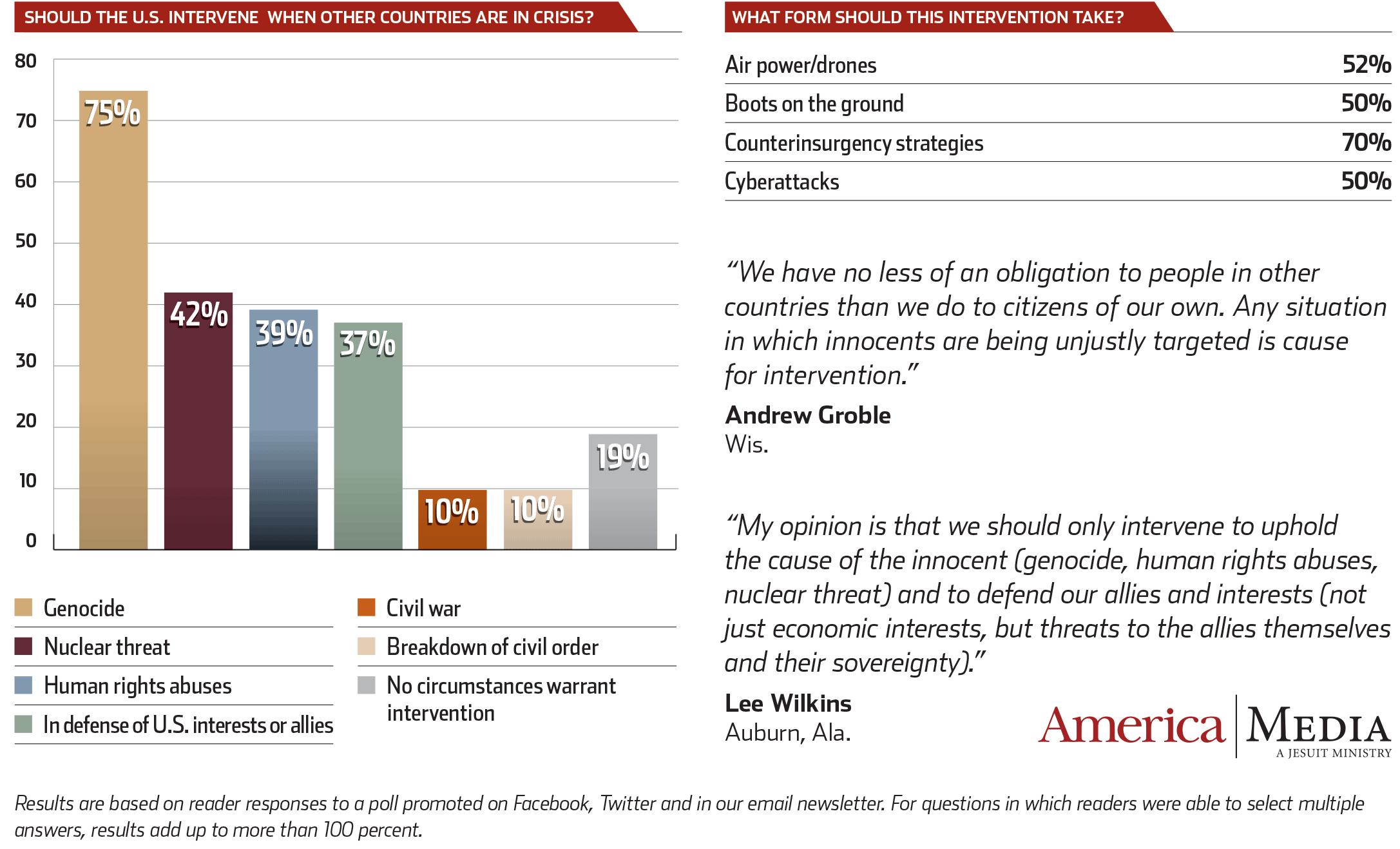Eighty-one percent of America’s reader sample said that, under specific circumstances, the U.S. military should intervene when other countries are in crisis. At 75 percent, genocide was cited more often than any other answer as a reason for the United States to provide military intervention. Megan DeFrain of Springfield, Ill., explained: “Military intervention should be the very last option, but it is sadly sometimes necessary. If the lives of millions of innocent people are at stake—as in the case of evils like nuclear threat or genocide—the United States has an obligation to defend people.” Alina Sierra Sedlander of Metairie, La., concurred: “It is our moral responsibility to stop genocide.”
It is our moral responsibility to stop genocide.
When asked what form military intervention abroad should take, 70 percent of respondents to our survey told us that counterinsurgency strategies should be used. Denise Hansen of Millville, Del., said that these strategies should be used in the case of genocide and noted that alternative forms of intervention, like drones and airstrikes, “have collateral damage in the form of civilian deaths. That’s not acceptable.”
Air power (52 percent), boots on the ground (50 percent) and cyberattacks (50 percent) received comparable rates of approval from readers. Matthew Scott of New York, N.Y., selected all forms of military intervention listed as potentially appropriate. “A range of options should always be considered,” he wrote, “with the principal considerations being maximizing both the efficacy in accomplishing the mission and the safety of American soldiers.” Nineteen percent of readers told America that no circumstances warrant U.S. military intervention abroad. Leo Bistak of Parma, Ohio, wrestled with choosing this answer. “I am torn between no intervention and intervention to save people,” said Mr. Bistak. “After all, war is a failure, not a positive venture.”









